
Vote November 29: Spotlight on ethical business practices
A proposal to make Swiss-based multinationals accountable for their business practices abroad is tabled for a nationwide vote on November 29. An initiative aimed at restricting investments in the arms industry is the second issue on the ballot sheet.
The political left is trying to push through amendments to the Swiss constitution to impose sustainable standards on Swiss companies and institutions, which has triggered opposition from the political right and the business community.
About 5.5 million citizens are eligible to take part in the two ballots, which are a key element of Switzerland’s system of direct democracy.
Corporate responsibility
The people’s initiative calls for legally binding measures to make Swiss-based companies improve their human rights standards and environmental protection in their business activities abroad.
The proposed constitutional amendment applies to all companies, including multinationals with Swiss headquarters. They have to prove they comply with due diligence rules to prevent abusive labour conditions and to respect environmental protection standards.
Individuals or organisations could sue companies that are in violation of the rules under Swiss law if voters approve the proposal.
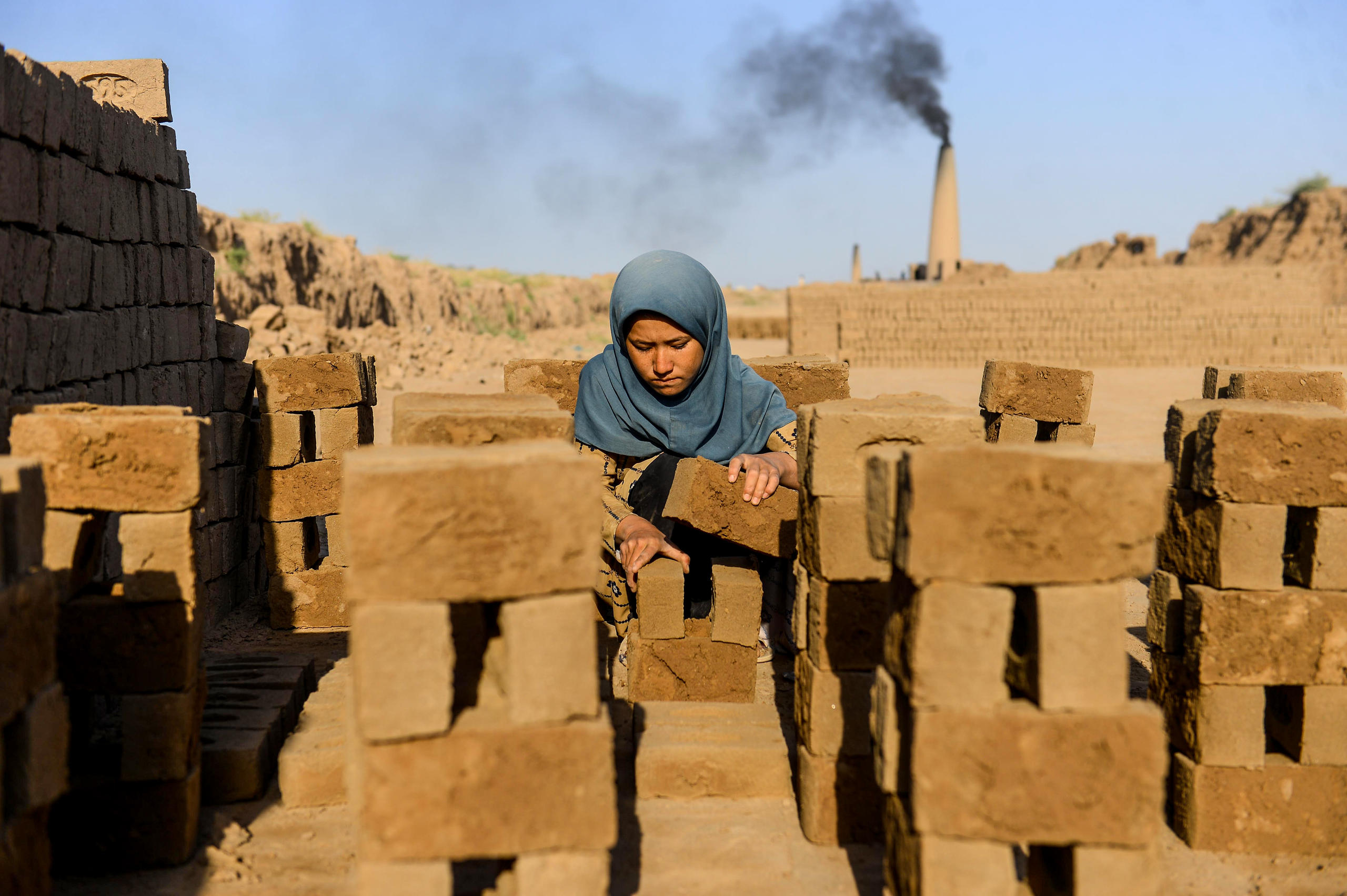
More
Corporate responsibility divides business and civil society
Supporters: The initiative was launched by an alliance of NGOs more than five years ago and is supported by church groups, human rights groups, trade unions and political parties mainly from the left. It is the latest stage in a ten-year campaign by civil society organisations for ethical business activities.
One of the most prominent supporters is an internationally renowned human rights expert and former centre-right politician, Dick Marty.
He argues it is time for Switzerland, a country with the highest number of multinational company headquarters per inhabitant, to act.

More
Rights expert calls to strengthen corporate responsibility
Opponents: The government as well as parliament have recommended rejection of the initiative at the ballot box. Instead they have drawn up a separate legal amendment. It provides for reporting obligations on human rights, environmental protections and corruption. But it doesn’t include a clause on corporate liability.
The counter-proposal will come into force automatically if the initiative fails to win a majority on November 29.
The leading business associations and a majority of the centre-right political parties have come out against the initiative. They say they agree with the aim of the initiative groups but strongly disagree with the proposed methods. Monika Rühl, CEO of economiesuisse, the Swiss Business Federation umbrella group, has warned of a flood of unjustified legal complaints.

More
Why Swiss businesses oppose plans for corporate liability
Multinationals: These companies are an important driving force for the Swiss economy. In 2018, there were nearly 29,000 multinationals based in Switzerland with a total of 1.4 million employees in countries around the world, according to official statistics.
Some of best-known names from commodities sector with Swiss headquarters include Glencore, Vitol, Gunvor and Trafigura, the food giant Nestlé and the pharmaceutical companies Roche and Novartis.
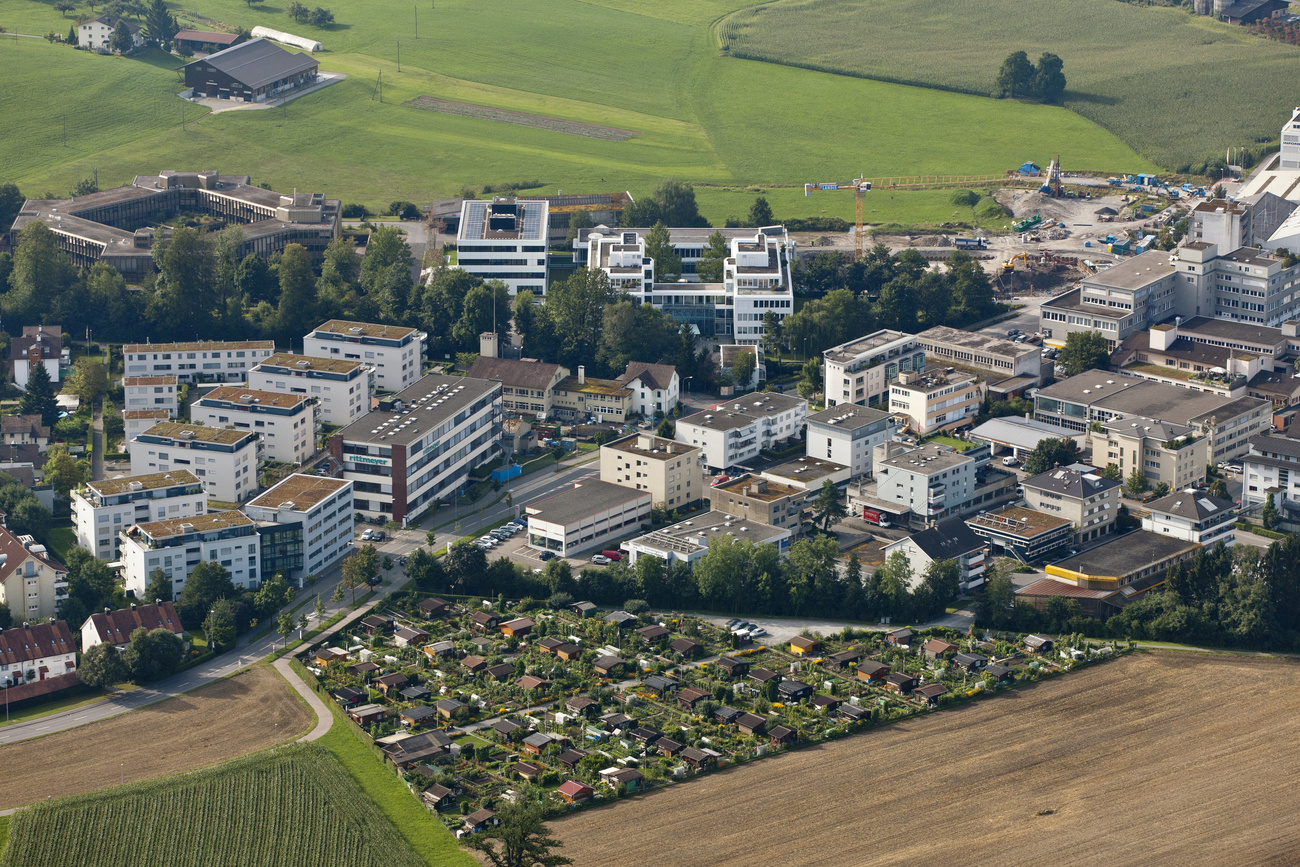
More
Swiss multinationals: global heavyweights in high-risk sectors
The United Nations adopted principles on business and human rightsExternal link in 2011 which Switzerland implemented in a national action planExternal link five years later based on the international guidelines. However, they do not include binding measures for companies.
Why are multinationals so concerned about the voters’ verdict on November 29?
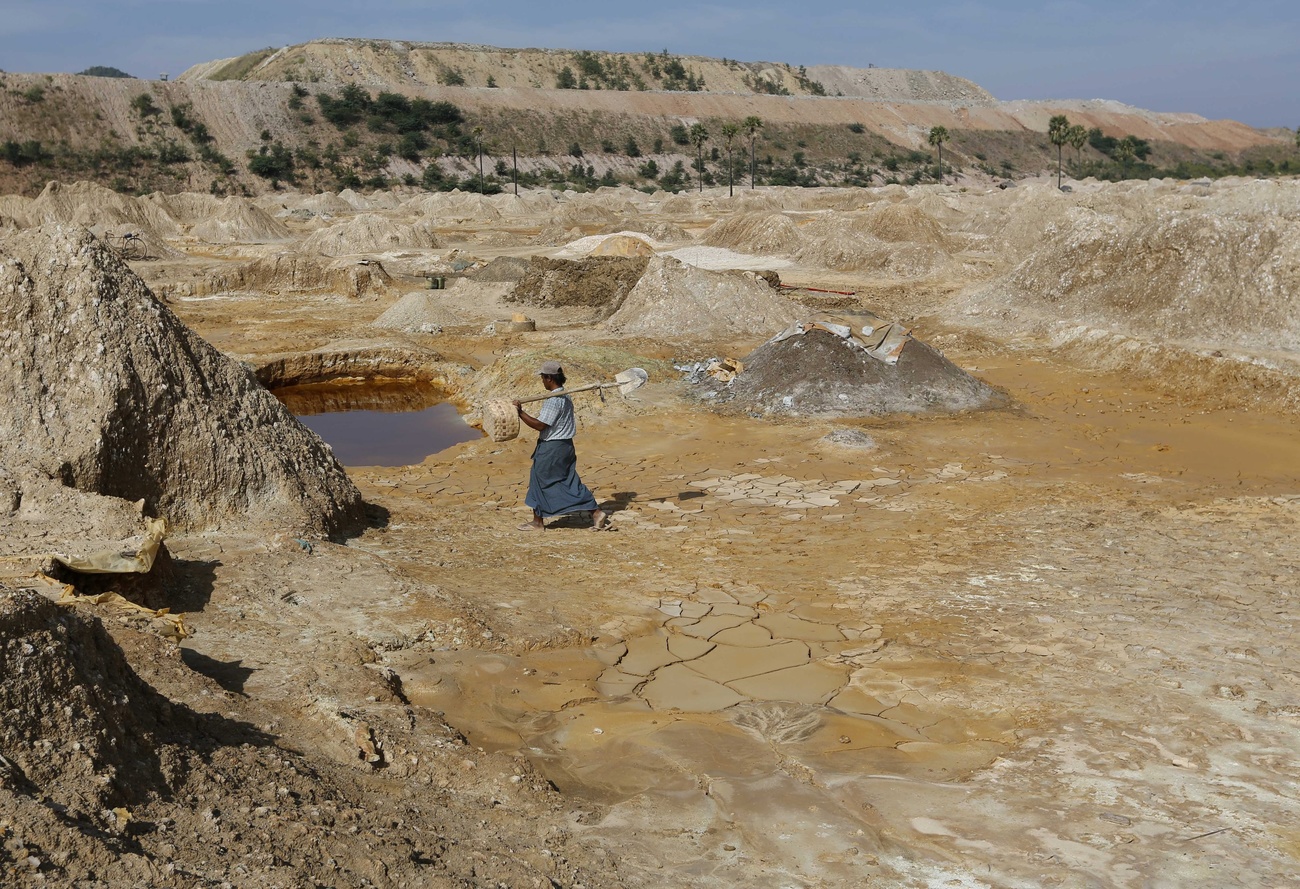
More
Why big companies fear the Responsible Business Initiative
How does the proposed legislation compare with rules in other countries?
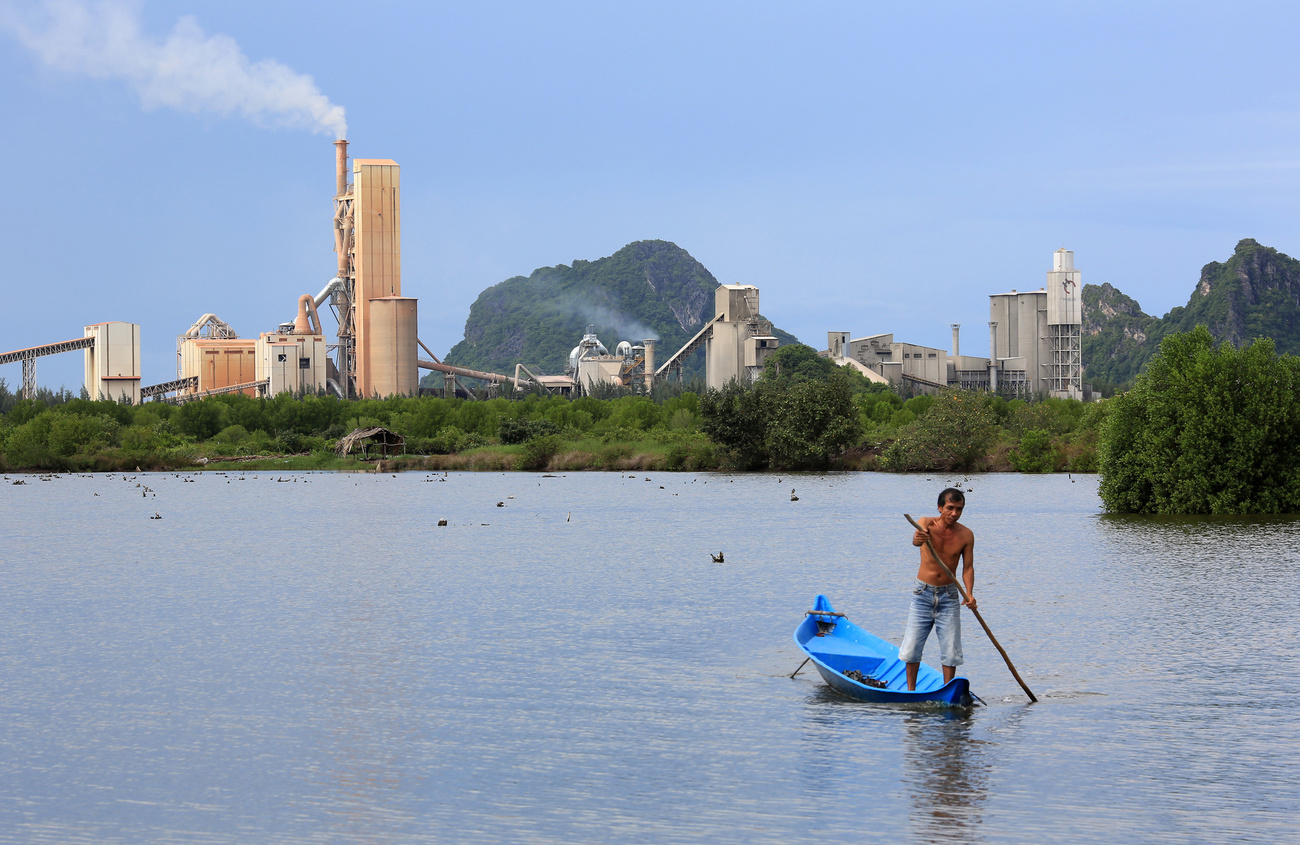
More
Swiss corporate responsibility vote reflects wider trend
The Swiss authorities online – ch.chExternal link
Federal Statistics OfficeExternal link
What is a people’s or citizens’ initiative?
Until now, the only options available to individuals or organisations seeking justice from violations of labour regulations or environmental rules by Swiss companies abroad have been to try to go to local courts, to take the protest to the streets or to approach local media. Or they can appeal to the Swiss National Contact Point (NCP). Here are three cases which show the limited role of the NCP.
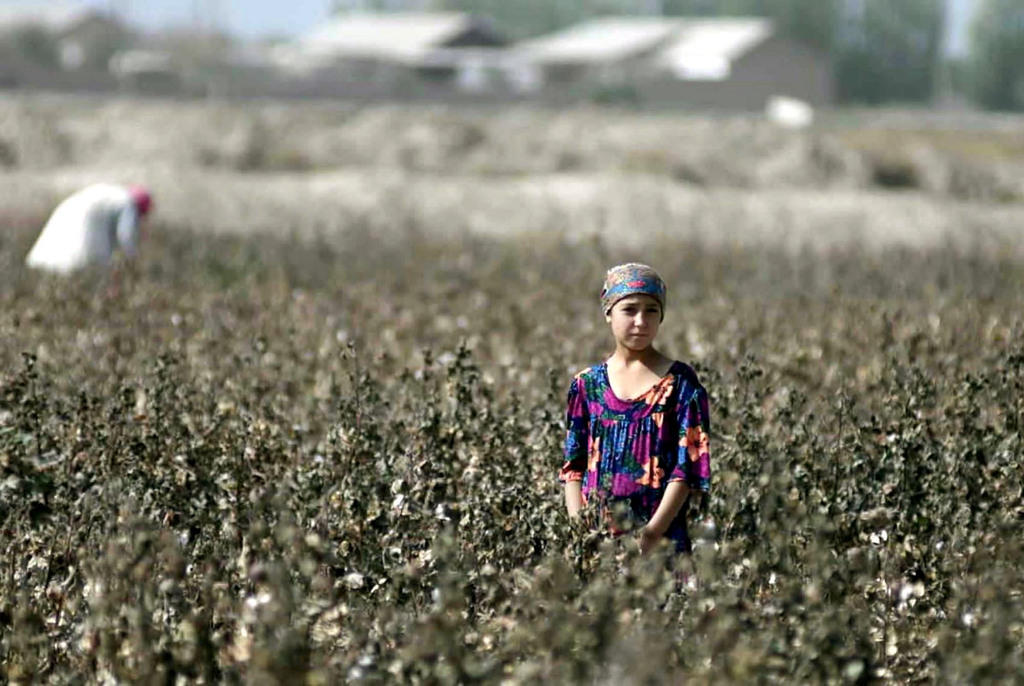
More
How easy is it to hold Swiss companies to account abroad?
Investments in weapons companies
The people’s initiative wants to outlaw the financing of companies that earn more than 5% of their annual turnover via weapons production. The Swiss National Bank, the state old age insurance scheme as well as pension funds and foundations would be affected in a first phase. These institutions managed CHF1.77 trillion ($1.93 trillion) in assets at the end of last year.
But the proposed constitutional amendment also wants the Swiss government to work towards restrictions for commercial banks and insurance companies both at national and global levels.
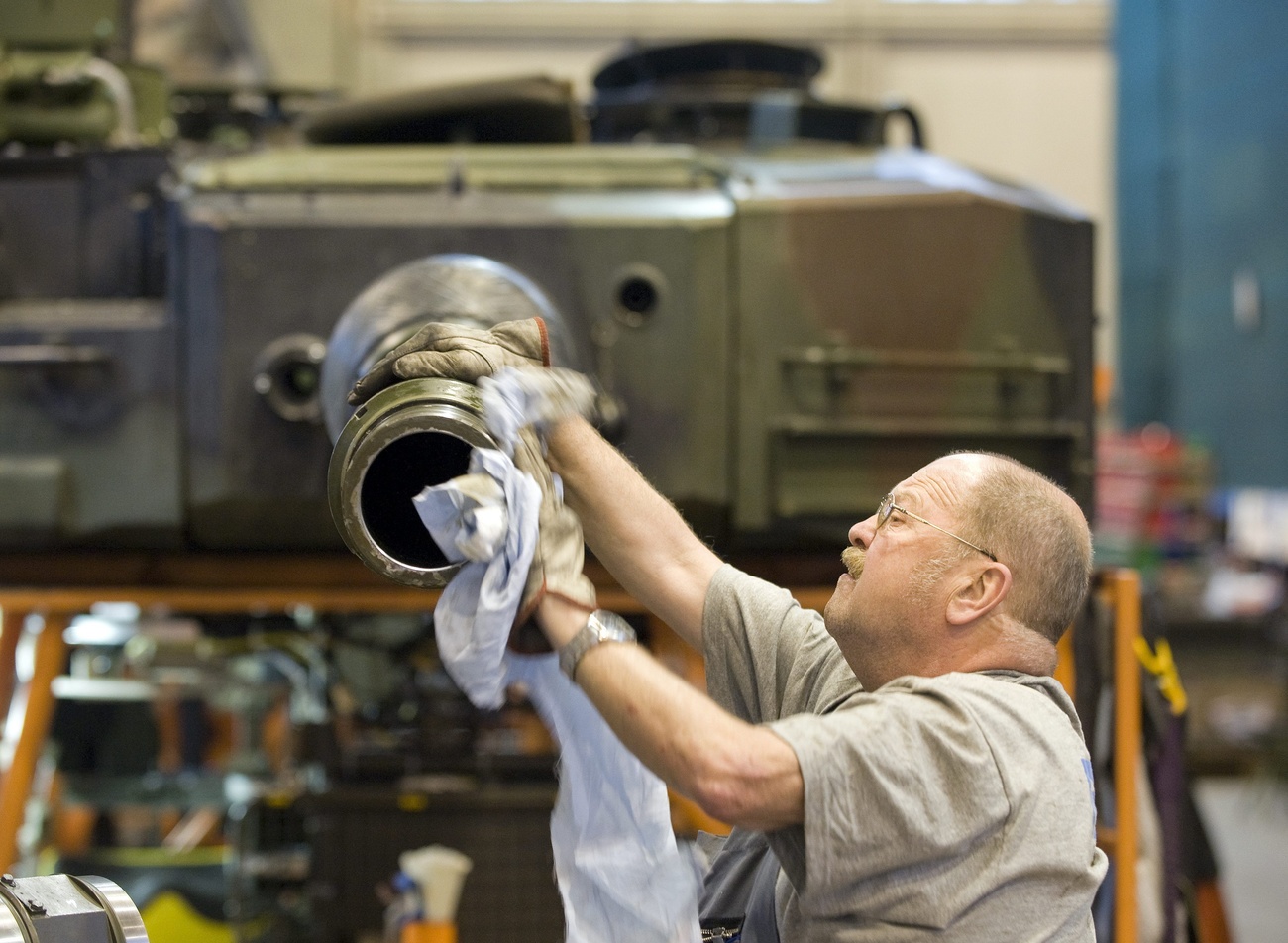
More
Proposed investment ban targets armament industry
The supporters of the initiative, which was launched by a pacifist group and the youth chapter of the Green Party, include left-wing parties and peace groups.
They argue that their proposal helps to build a better world by targeting international arms companies. In the same vein, they say Swiss funds currently invested in arms companies help stoke wars across the world and undermine neutral Switzerland’s role as a peace promoter.
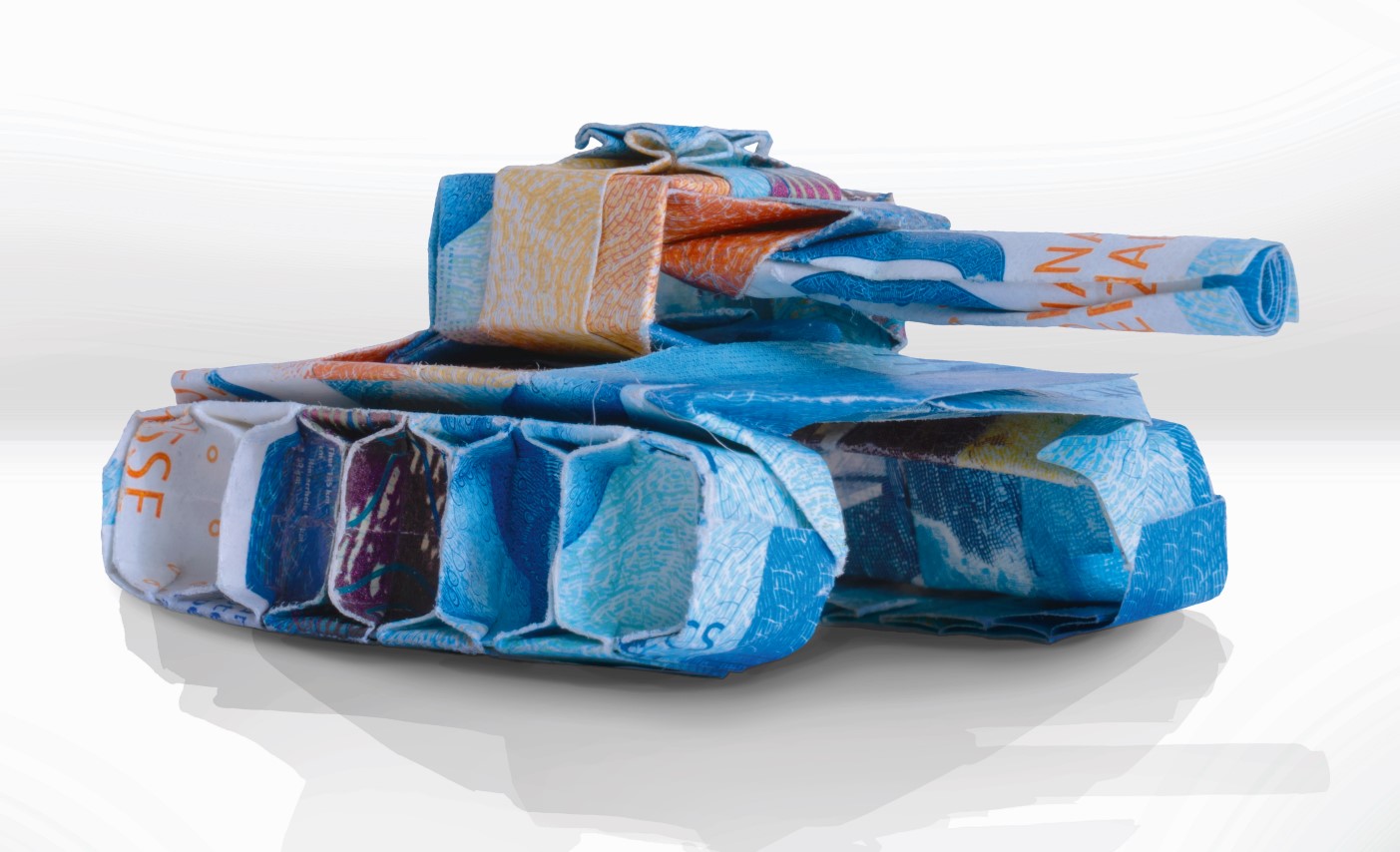
More
Pacifist group slams Swiss investment in global arms industry
The opponents, a broad alliance from most political parties from the right and the centre, as well as the business community and the government, have warned of serious consequences for the Swiss economy. Small and medium-sized companies which supply parts to the armament industry could be struggling to keep jobs, they say.
They also argue that the independence of the Swiss National Bank could be at risk and pension funds, notably the state old age pension system, might see a notable drop in revenue if further investment restrictions are introduced.
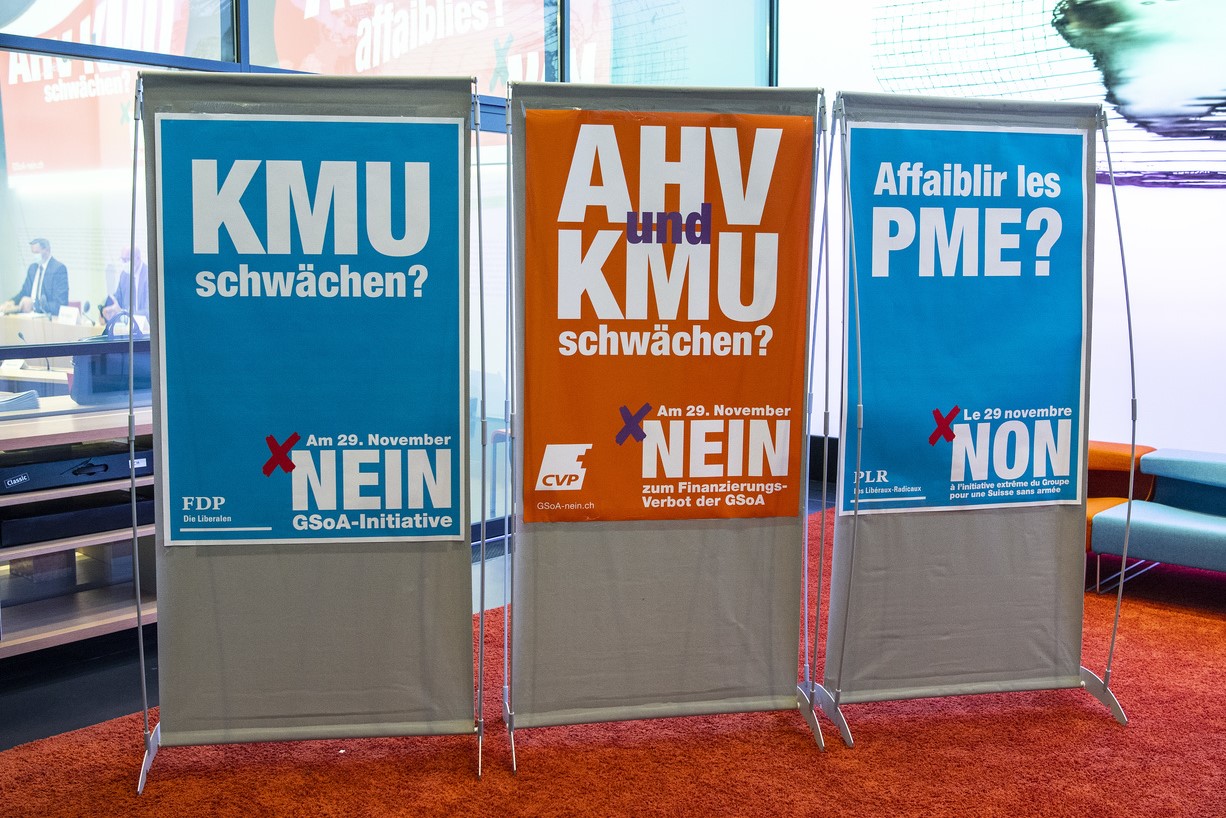
More
Opponents say anti-arms investment plan would hit small firms
Under current Swiss law, direct – and in some form also indirect – investments in nuclear, chemical and biological weapons as well as anti-personnel mines and cluster ammunition are banned.

More
Initiative aims to impose ethical investment rules
However, a report by the Dutch NGO PaxExternal link has shown that the Swiss central bank, the two leading commercial banks, UBS and Credit Suisse as well as the the Fisch Asset Management company last year invested up to $9 billion (CHF8.1 billion) in international companies producing banned war materiel, notably Lockheed Martin, Honeywell, Boeing and Airbus and Aecom.

More
Major Swiss banks invest billions in weapons manufacturers
Beside the National Bank, Switzerland’s pension funds would also be affected by investment restrictions.

More
Pension funds curb arms investments, but oppose an outright ban
About 5.4 million voters, including Swiss citizens living abroad, are eligible to take part in the ballots.
It is the third set of votes this year.
Besides the two nationwide ballots, there are numerous votes at cantonal and local levels on November 29.

In compliance with the JTI standards
More: SWI swissinfo.ch certified by the Journalism Trust Initiative